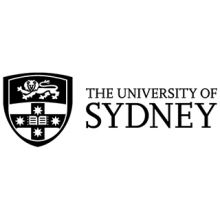Australian universities’ handling of antisemitism differs starkly from their “zero tolerance” approach to sexual harassment, a Senate committee has heard.
The Australian Academic Alliance against Antisemitism said universities had failed to act on its survey findings that just one in three Jewish undergraduates felt safe on campuses. By contrast, administrators had acted promptly after a 2021 study into sexual misconduct found that 6 per cent of students felt unsafe at university.
Alliance co-founder Steven Prawer said Jewish students were “screaming that they feel unsafe and discriminated against. Why is that being tolerated when sexual harassment is not being tolerated?” he asked the Senate’s Legal and Constitutional Affairs Committee.
“[University of Sydney vice-chancellor] Mark Scott said after the report on sexual harassment that just one case is too many.”
The committee is examining legislation to establish a judicial inquiry into antisemitism on campus. It heard that Jewish parents were now selecting universities for their children based on which institutions were perceived to be least antisemitic.
“We have countless reports of Jewish students being singled out in classes by lecturers and peers, spat on and told that they have no right [to] cultural safety,” said the alliance’s other co-founder, Efrat Eilam. She cited reports of Jewish academics being doxed on Twitter, vilified through staff communication channels and assaulted.
Professor Prawer, professor of physics at the University of Melbourne, said he had been evacuated from his office after students learned of his joint PhD programme with the Hebrew University of Jerusalem. “I had a security guard outside of my office for the next three days,” he said. “You can well imagine…what a chilling effect this has on other members of staff who are less senior [and] feel that they can no longer exercise their academic freedom to, for example, collaborate with Israeli colleagues.”
The Australasian Union of Jewish Students said its members were forced “to choose between their education and their safety”. Vice-president Zachary Morris said cries for help had fallen on deaf ears. “This has been politicised,” he said. “[There is] a complete lack of trust in the existing university systems.”
He said a judicial inquiry would give Jewish students the confidence to testify. “There is such a fear of retaliation and victimisation…that unless independence is guaranteed, we’re not going to get to the bottom of this. We need a form of truth telling.”
Also appearing before the committee, Sydney’s Professor Scott said he had “never encountered an issue that’s generated more anguish or grief or anger” in his long career education and media career. “The testimonials are heartbreaking and unacceptable,” he said.
“No one should feel at risk, unsafe or unwelcome at any place of learning, and no one should feel the need to hide their identity or stay away from classrooms or campuses. I failed them, and the university has failed them. The university has a responsibility to take active steps to ensure a safe environment free from discrimination. If a judicial inquiry is…a necessary part of the solution, we welcome it.”
Professor Prawer said the response to the sexual harassment report showed that universities could “swing into action” when it suited them.
“To be fair, many of the universities have reached out to our alliance and have asked us to participate with them in crafting an appropriate educational programme on campus – not all, but some.”
The committee was due to report on 4 October.
Register to continue
Why register?
- Registration is free and only takes a moment
- Once registered, you can read 3 articles a month
- Sign up for our newsletter
Subscribe
Or subscribe for unlimited access to:
- Unlimited access to news, views, insights & reviews
- Digital editions
- Digital access to THE’s university and college rankings analysis
Already registered or a current subscriber? Login










